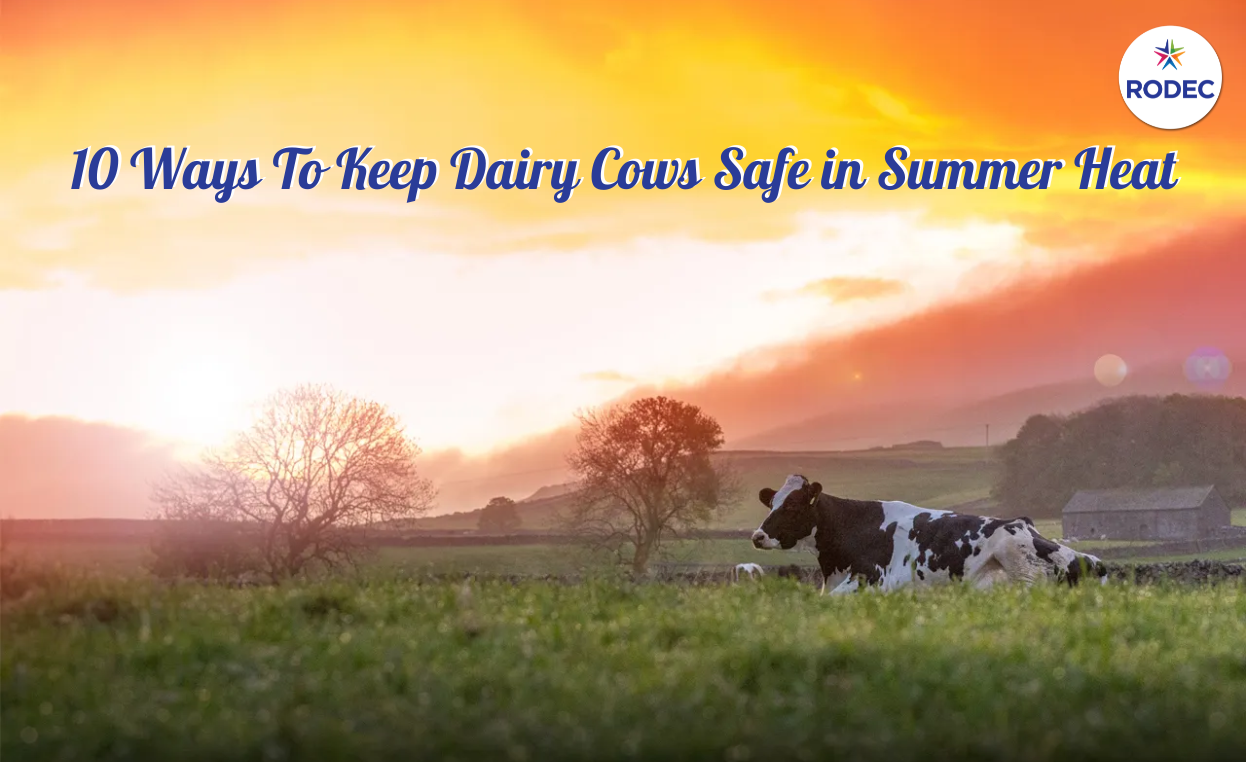
Blog |
June 04, 2024
Heat and humidity are two of the greatest challenges in dairy during summers.
The constant exposure to heat and humidity in summers causes heat stress in dairy animals like cows and buffalos. Heat stress occurs when cows generate and absorb more heat than they can easily get rid of by respiration, sweating and air blowing by wind or fans.
Signs that show cow is affected by heat stress:
Ensuring the safety and well-being of dairy cows during the summer heat is crucial for maintaining their health and productivity.
Here are 10 ways to keep dairy cows safe in hot weather:
- Provide Adequate Shade: Install shade structures or natural covers on the farm to allow cows to stay away from the direct sun. This helps to avoid heat stress and lowers the chance of sunburn.
- Access to Fresh Water: Ensure that cows have consistent access to clean, fresh water. During warmer weather, cows drink more water to stay hydrated and control their body temperature. Consider placing water troughs or automatic watering systems in multiple locations.
- Misters and Fans: Install misters or fans in the farm or milking parlor to help cool the air and relieve heat. These technologies can assist reduce temperatures while improving cow health.
- Proper ventilation: Ensure that there is enough ventilation in the shed or living facilities. Proper ventilation is crucial for diffusing heat and humidity, particularly in enclosed areas where cows spend a lot of time.
- Adjust Feeding Schedule: To reduce the heat produced from digestion, shift feeding periods to cooler times of day, such as early morning or late evening. Provide high-quality, easily digested feed to reduce metabolic heat production.
- Supplementation: Provide supplements like CPE 240 Advance to replenish the energy lost through consistent panting. CPE 240 Advance is a COMPLETE PROTEINATED ENERGY Health tonic that can help maintain gluconeogenesis and meet nutritional and energy requirements under heat stress.
- Regular Health Checks: Check cows for indications of heat stress, such as increased respiration rate, decreased feed intake, and a rise in body temperature. To avoid further complications, any health issues should be treated promptly.
- Reduce Handling and Stress: Limit handling and demanding activities during the hottest times of the day. Limit unnecessary cows movement and transportation to avoid adding to the heat load and suffering.
- Proper Hoof Care: Maintain good hoof health to avoid lameness, which can be worsened by hot and dry weather. Regular foot trimming and giving clean, dry resting areas can help in preventing hoof-related problems.
- Cooling Pads or Soakers: Place cooling pads or soakers in holding areas or transfer lanes to chill cows' feet and bodies before milking. This can help cows feel more at ease and produce better milk during the summer.
By implementing these measures, dairy farmers can help reduce the impact of summer heat on their cows, ensuring their well-being and productivity throughout the season.
Related Products: CPE 240 Advance, LOC Bolus
Written by: Anisha Arora


